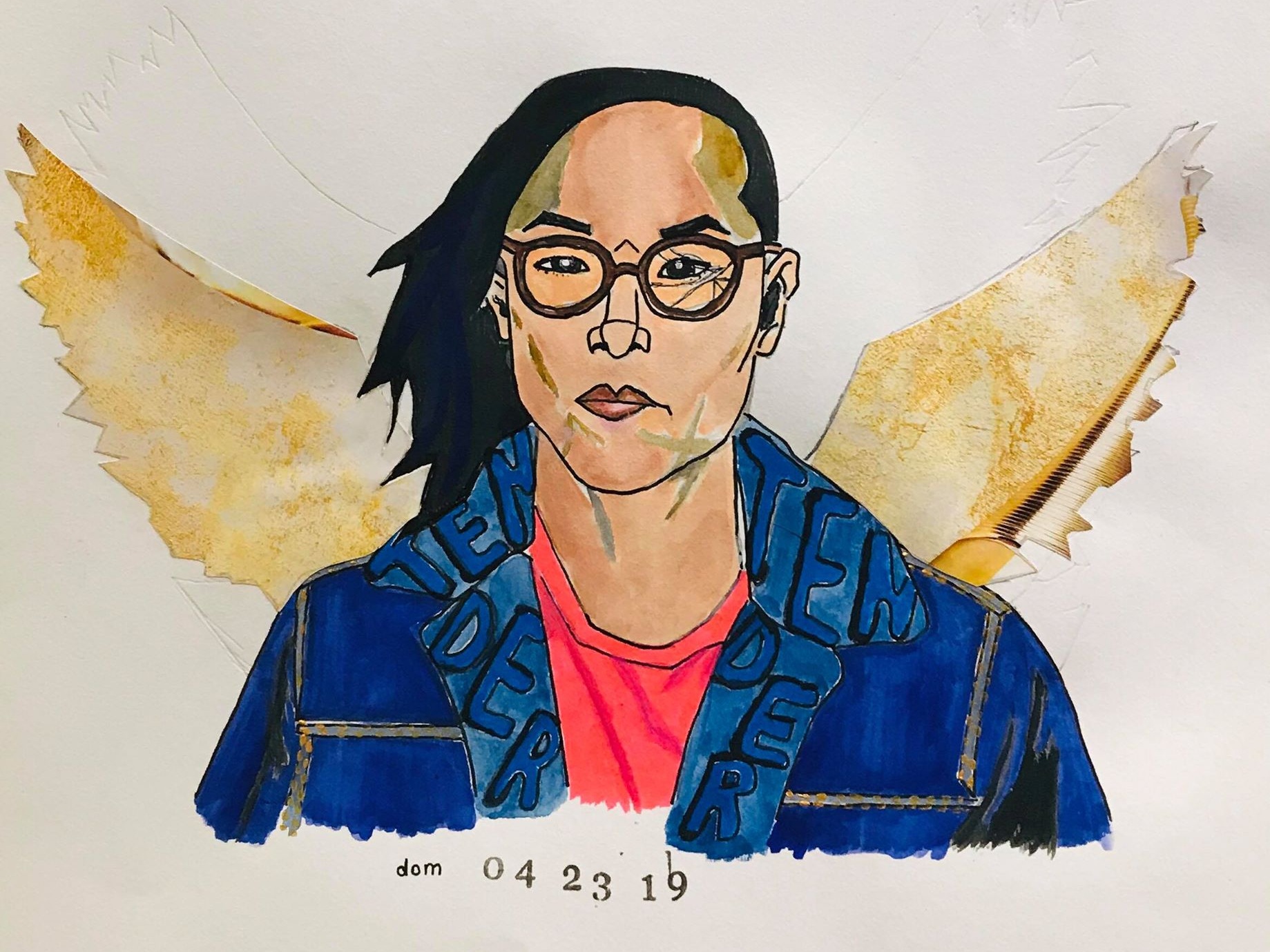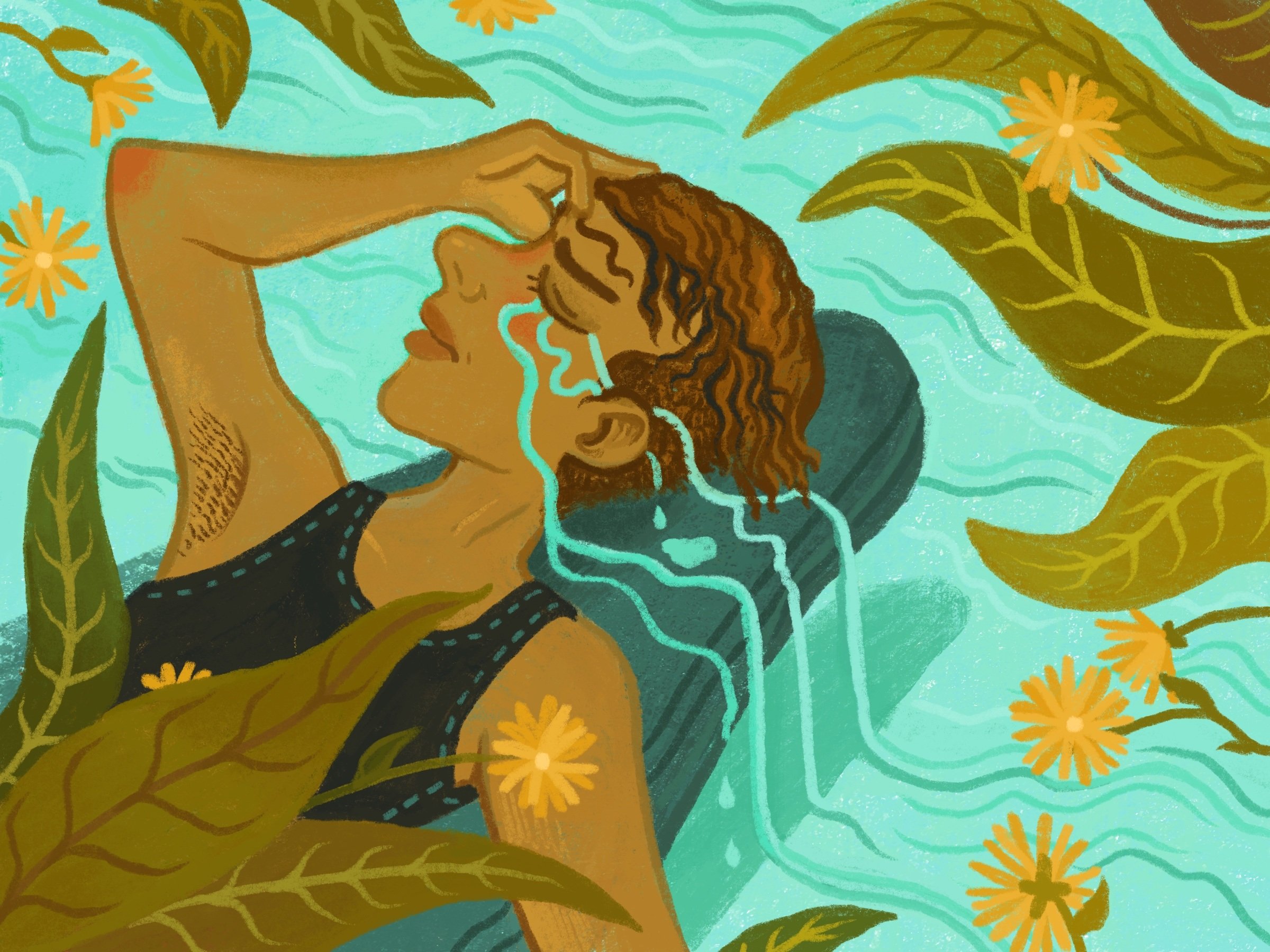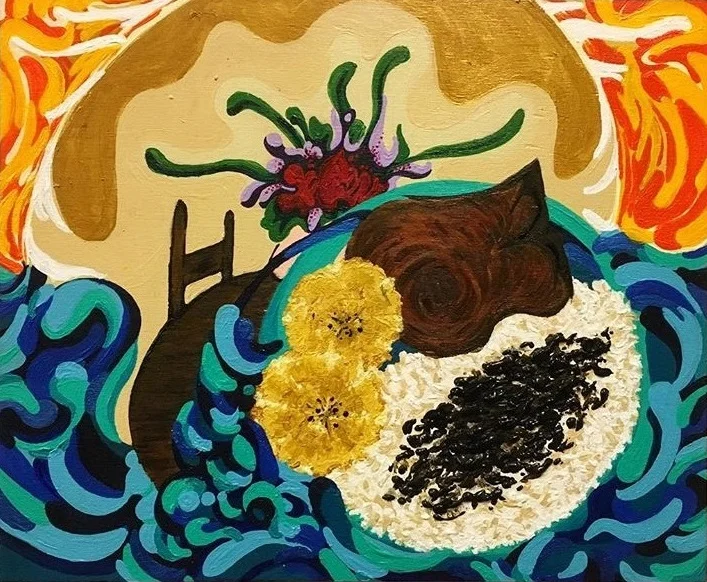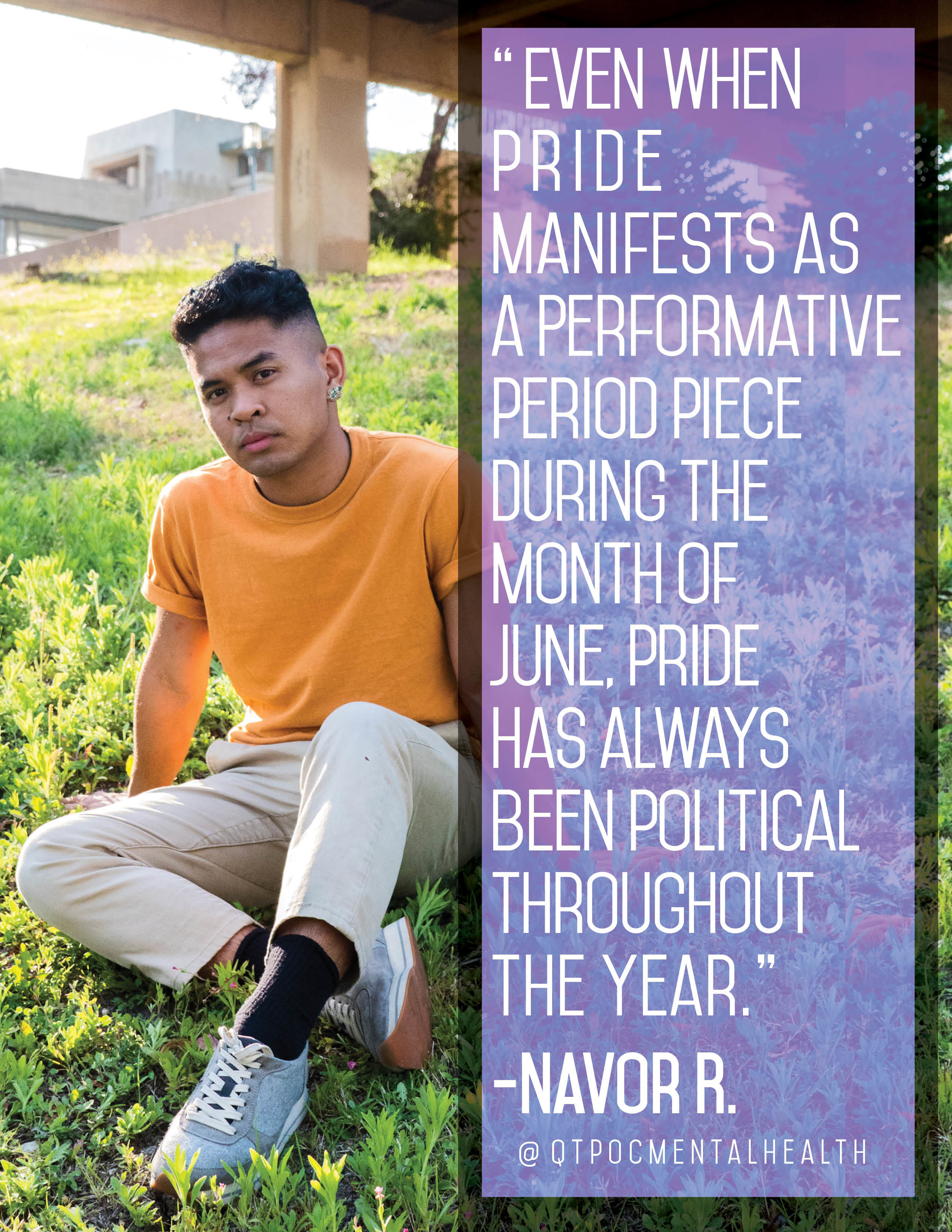Illustration by Art Twink
I went to a pottery class last week, and we spent most of the time learning how to softly shape the outer edges of the teapot body while supporting the insides with our other hand. My hands felt too big and clumsy, and the teapot kept sinking down because the bottom could not support the weight that I had piled on top.
Then when I was done, the instructor handed us an already flattened clump of clay, set it in the deepest groove of our hands and told us to cut it to fit the opening of our teapot. “That will become the lid,” she said and gave no further direction.
I sat there frozen, holding onto my pottery knife and this round piece of clay. I had made the teapot without even thinking about how big the top had to be. I wondered how the hell I was supposed to cut out a perfect circle to fit the size of the teapot opening. I wondered if there was a stencil. I wondered if I was supposed to hold it over the teapot then try to trace it the best I could. I wondered if I was supposed to get a compass and make a circle.
Then I happened to look over at the instructor. And I saw her carve a circle into her piece of clay. No tools, just a free-hand drawing of a circle-like shape. She didn’t look up from her clay, but in between slicing off certain edges, holding it over the teapot to measure the size, then taking it back to adjust it again, she said, “우리는 기계가 아니에요. 인간이에요. 완벽하지 않아도 괜찮아요.”
We’re not machines. We’re human. It’s okay if it’s not perfect.
It felt like she was talking to me. I silently grabbed my knife and started carving. I keep thinking back to that moment. The assumptions I made about how creation should happen, how mistakes still strike fear in me, and how her words can apply to so many of the situations that I find myself in these days.
* * *
The more I grow, both physically and emotionally, I realize how important that process is and how important creation is. And how our society minimizes these acts because they do not fit into the capitalist goal of maximum production. But we are not machines. Our productivity does not have a steady rate that can be calculated, and we don’t produce more just by spending more hours at a certain task.
We’re more complicated than a simple input (x) —> output (y)
kind of linear function.
We require physical rest, emotional connections, daydreaming, food, laughter, purpose. And all of these things prevent us from fitting neatly into a machine model. I don’t think I really understood how this idea of “productivity” led to my habits of overworking myself, pushing myself too far, not scheduling in breaks — because that’s what always worked and got me to places that others deemed to be “successful.” Now I realize that it was because I had run myself down as if I was not human — as if I were a machine — and that was what they valued.
I think that’s why I’m looking for more opportunities to engage in creative work — like gardening, writing, pottery, music. I am slowly learning how the input of my time, energy, and thoughts never directly lead to a final, marketable product. And how the process of creation is so different each time. The same amount of time, energy, and thoughts might create a completely different “product” on a certain day, for a certain person, in a certain time — or perhaps no complete “product” at all.
Acts of creation are like looking capitalism in the eye and declaring, “I cannot be defined by your standards; I am fundamentally un-quantifiable.” It brings into question the capitalist process of quantifying or commercializing labor. How to put a monetary price tag on food / pottery / art / music / time that do not have set quantifiable labor inputs.
And more importantly, each time I create — kneading the clay and smoothing out its cracks — I feel the energy and warmth radiating from the tips of my fingers, and it shifts my understanding of cost, value, and worth — especially of myself.
We need community support to continue publishing!
Articles and artwork like these are only possible through your contributions. Please donate today to sustain the wellbeing of artists, writers, healers, and LGBTQ2IA+ people of color.
You can also support our team by picking up
a Rest for Resistance print zine.
Image description:
Two worn hands are holding a clay teapot. The right hand has a pink bandage on it. The background, which features three teapots and three robot hands, is blue in contrast to the warm tones of the person working with clay.
About Art Twink:
Asharah Saraswati is an illustrator based out of Northern California currently creating comics and apparel. See their art at art-twink.tumblr.com or on Instagram or facebook under the same name.
About Juhee Kwon:
Juhee is a queer diasporic korean from the midwest, currently living in Seoul and pursuing traditional korean medicine.
In "Honor, the Scorned," Xelestial's soul is in constant turmoil with the encounters of love she has in her life, as well as her insistence and demand to be seen under her terms. We enter a transient space of time and magic in this performance ritual with Xelestiál's body, heart, and soul.
Because we encompass gender defiant ideologies and reject the mainstream, we who visibly navigate queerness, who practice transfeminism, miss out on the queer capitalist extravaganza that everyone else benefits from.
Pride can look like resting with our ancestors, resting with the ones who paved the road of the movement blocks that guide our liberation.
I’ve finally allowed myself to be honest with myself. And as a result, I’m able to be honest with my partner.
They’ll talk Native issues so it seems like they care / But LGBTQ2S issues are Native issues because we’ve always been here
Family meant loving what was not there. But then we grow up. And we learn that to draw close is to survive. And to draw close is maybe even something desirable.
Does adoption count as something chosen? What part? For whom?
Be vulnerable / Speaking your truth / Even when it shaves your soul / Naked / Leaves your heart in tears / Sheds your fear in pieces
I proceeded to tell them what happened. I didn’t have much in the way of details—believing that’s what they wanted to hear—but what I did share left them in a state of slack-jawed shock. They asked me to imagine for a moment if I had done to her what she had done to me, where I might be at that very moment.
I know few get the opportunity to heal. That’s the motivation that drives me to do healing justice work. But in offering community support, I often forget that I’m part of the community too, that I deserve access to heal from trauma. And those “I don’t deserve _____s” are all giving voice to my survivor’s guilt.
Past experiences of broken confidence held me back, and I had even less confidence that I would be able to find a queer competent, POC identified behavioral health professional with sexual assault experience who was worth investing time, money, and trust in.
Communication is super, super important. Yet no one really taught me how to communicate about sex. I’ve begun to ask myself why I am so afraid to be seen.
A video featuring Eve Xelestiál Moreno-Luz. “My perception as a self identified femme brings forth waves of validation to the divine I know myself to be.”
What we always lack vocabulary for is our feelings. We don’t know how to express them without navigating through the shame of being a feeling person first. We don’t know how to ask without demanding.
I stopped being at the mercy of other healers when I began to heal myself.
There are things I want to do all the time, like … I have ambitions, I do, really … want to be there for people, but…
Even if there is tension among your bio family, you are still loved and honored for who you are in the other spaces you create for yourself. No one can take that from you.
Christmas started bullying me; during sleepless nights it showed a carousel of pictures of my childhood: the primary love I thought I had but deeply marked me, carers who gave me unhealthy bonding, yet carers who I deeply miss.
Still no matter how much I try to resist it / I wax nostalgic for a person who never existed
Often, I wonder if I love women because I’m tired of being hurt by men. In effect, I have the same question many queer survivors have: am I queer because I was abused?
I’m not doing it on purpose, I promise. But when I’m in the bathroom alone I look at myself in the mirror and I go to a dark place within my own body, somewhere that I haven’t yet exorcised and burnt incense in.
fuck you! / and now you want me to speak like a martyr? / well I am still alive and much smarter
As we dream of ways to change our world by embodying a more radical self-care and community care, let’s make sure that we don’t leave members of our community or those who could be part of our community behind.
this water offers resolve. / —Touches every part of my body / & does not flinch (Poem also available en español)
You there, you are Sacred & I am Sacred too. / Every one & Every being provides a purpose. / No purpose too small, for even our Beetle Brothers & Sisters bring us a Message.
Once I began to receive my benefits, I began to distance myself from an idea that productivity defines whether I am deserving of respect.
Wanting to take space as a fat brown genderqueer femme is all fun and games until the folks who domineer the space take notice.
I don't know what God meant to do by putting something so un-straight on top of a head so un-straight, but there are reasons they say this is unmanageable / Not because it is impossible to love, or to care for, but because it is impossible to subdue.
I’d like to think of this as a chance to force people to confront the differences between sex and romance. They don't always coexist.
This May, Rest for Resistance is featuring writers who have a chronic mental health condition. Support our contributors on patreon.com/qtpoc, or donate directly through our website.






























